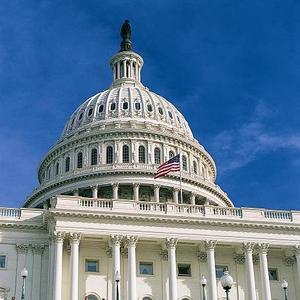73 biodiesel cos., stakeholders ask Congress to extend tax credit

March 26, 2019
BY The National Biodiesel Board
The National Biodiesel Board, its member companies and stakeholder organizations delivered a letter to House leaders, urging them to make a multiyear extension of the biodiesel and renewable diesel tax incentive an urgent priority. In February 2018, Congress retroactively extended the tax incentive for 2017, leaving it expired for 2018 and beyond. The letter thanks Sens. Chuck Grassley, R-Iowa, and Ron Wyden, D-Oregon, for their bipartisan bill to immediately extend all expired tax incentives.
In the letter, the biodiesel industry stakeholders write, “The future of the credit has been unclear for more than 14 months. That uncertainty is curtailing investments in new plants and capital projects to upgrade existing plants. It is beginning to force some producers, blenders and distributors to cut back purchases of raw materials and deliveries of renewable fuel to consumers, which will have impacts across the economy.”
Advertisement
Advertisement
The U.S. biodiesel and renewable diesel market grew from about 100 million gallons in 2005, when the incentive was first implemented, to more than 2.6 billion gallons annually since 2016.
“The U.S. biodiesel and renewable diesel industry’s continued success is now at stake,” the letter continues. “Tens of thousands of American workers and manufacturers—as well as the millions of Americans who benefit from cleaner air and water—are depending on you to provide our industry the certainty we need to secure investments and continue growing over the next several years.”
Advertisement
Advertisement
Kurt Kovarik, vice president of federal affairs with NBB, added, “The biodiesel industry has long advocated for a multiyear extension of the tax incentive. But because the incentive has been expired for 15 months—the longest period of uncertainty for this policy since its start—it is urgent that Congress act immediately to provide the biodiesel industry certainty for 2018 and 2019.”
Download the full text of the letter.
Made from an increasingly diverse mix of resources such as recycled cooking oil, soybean oil and animal fats, biodiesel is a renewable, clean-burning diesel replacement that can be used in existing diesel engines without modification. It is the nation’s first domestically produced, commercially available advanced biofuel. NBB is the U.S. trade association representing the entire biodiesel value chain, including producers, feedstock suppliers and fuel distributors, as well as the U.S. renewable diesel industry.
Related Stories
The U.S EPA on July 17 released data showing more than 1.9 billion RINs were generated under the RFS during June, down 11% when compared to the same month of last year. Total RIN generation for the first half of 2025 reached 11.17 billion.
The U.S. EPA on July 17 published updated small refinery exemption (SRE) data, reporting that six new SRE petitions have been filed under the RFS during the past month. A total of 195 SRE petitions are now pending.
The USDA has announced it will delay opening the first quarterly grant application window for FY 2026 REAP funding. The agency cited both an application backlog and the need to disincentivize solar projects as reasons for the delay.
CoBank’s latest quarterly research report, released July 10, highlights current uncertainty around the implementation of three biofuel policies, RFS RVOs, small refinery exemptions (SREs) and the 45Z clean fuels production tax credit.
The U.S. EPA on July 8 hosted virtual public hearing to gather input on the agency’s recently released proposed rule to set 2026 and 2027 RFS RVOs. Members of the biofuel industry were among those to offer testimony during the event.
Upcoming Events










